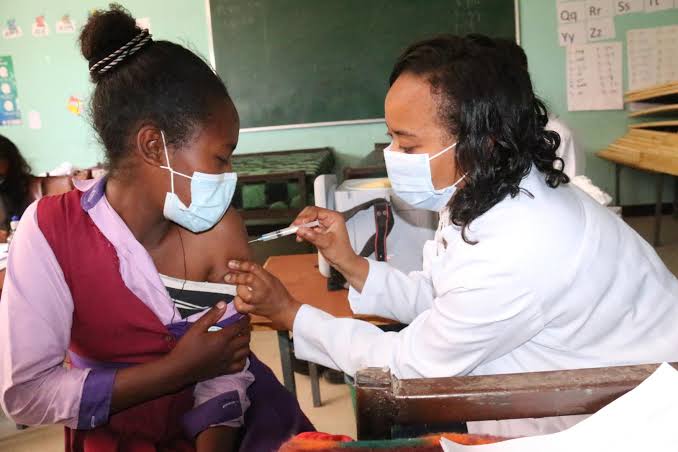***Says HPV Vaccine Safe, Effective, Long-lasting Protection Against Cancers
The State Immunisation Officer of the Rivers State major Health Care Management Board, Dr. Inwon Joseph Urang, has stated that the human papillomavirus (HPV) is the major cause of almost 95% of incidences of cervical cancer.
He disclosed this during a two-day media discussion on the care of small and sick newborns, the availability of oxygen, and the introduction of the human papillomavirus vaccine in Nigeria, which was arranged by UNICEF and the Child Rights Information Bureau (CRIB) of the Federal Ministry of Information and National Orientation. The discussion was intended for health correspondents.
He highlighted the global prevalence of HPV, affecting around 80% of sexually active individuals at some point in their lives.
Dr. Urang emphasised that most HPV infections are asymptomatic, with around 90% resolving within two years. Persistent infections, particularly with certain HPV strains such as 16 and 18, can, nevertheless, result in cervical cancer. This progression often displays symptoms only in the latter stages, with a 20-year average development duration.
Nigeria, with a population of 56.2 million women aged 15 and over, has severe cervical cancer risks. An estimated 12,075 women are diagnosed with cervical cancer each year, resulting in 7,968 deaths. Cervical cancer is the second most common malignancy among Nigerian women aged 15 to 44.
Cervical cancer is the fourth most frequent malignancy in women worldwide, with around 604,000 new cases and 31,421,000 deaths per year. According to the, Nigeria, according to the World Health Organization, contributes significantly to these statistics.
Urang emphasized that long-lasting infection with specific HPV types is the primary cause of cervical cancer. He advocated for HPV vaccination as a safe and effective preventive measure, with over 135 million doses distributed globally since licensure.
Meanwhile, Margaret Adaba Soyemi, a Social and Behaviour Change Officer at UNICEF, urged journalists to avoid sensational headlines that could undermine efforts to combat cervical cancer.
She emphasized the importance of sharing accurate messages to dispel misconceptions about the vaccine, highlighting its safety, effectiveness, and accessibility.
Soyemi cautioned against amplifying rumors that could inadvertently lend credibility to misinformation.

